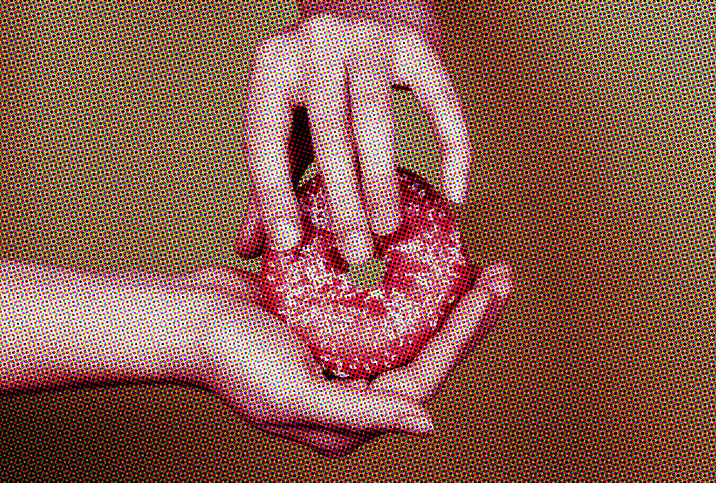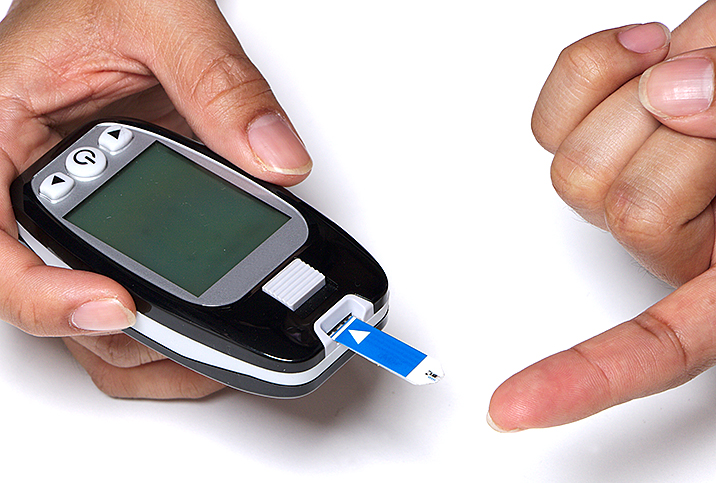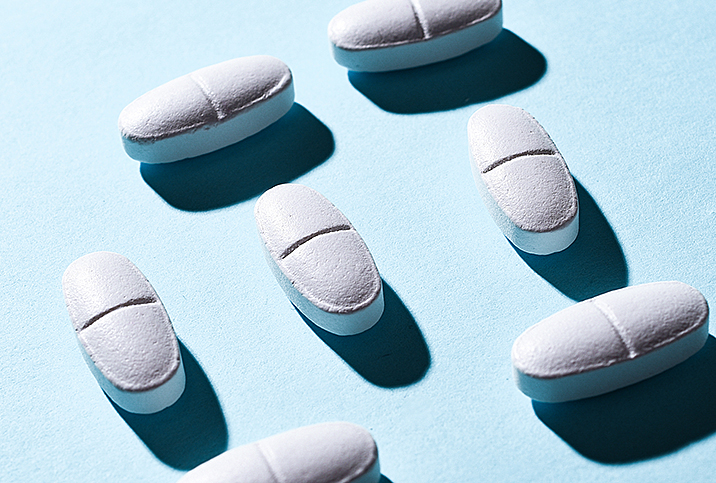The Facts About Diabetes and ED

About half of men who have diabetes will experience erectile dysfunction (ED), and the percentage increases as men age. While diabetes may cause you to experience ED, there are options available to help you maintain an active and intimate sex life.
An overview of diabetes
Diabetes results when your blood glucose (blood sugar) is elevated. Blood sugar, which comes from what you eat and drink, is the body's primary source of energy. Sugar is the essential ingredient to help tissues and organs function properly.
The pancreas gland produces insulin, a hormone that facilitates getting the sugar from your diet into your blood cells for energy. If your pancreas makes too little or no insulin, the sugar stays in your bloodstream. If sugar does not get to your body's cells and continues to build up in your bloodstream, known as hyperglycemia, your overall health can be adversely affected.
You can develop diabetes if your pancreas makes no insulin or an insufficient amount, or if your blood cells do not properly respond to insulin.
The blood test used to diagnose diabetes is an A1C test, which measures your average blood sugar levels over a three-month period and reports them as a percentage; the higher the A1C level, the greater the risk for diabetes. A normal A1C level is 5.7 or lower; however, normal ranges can vary depending on an individual's general health and history of diabetes. For example, some people may be within normal A1C levels but develop problems with low blood sugar, known as hypoglycemia.
When blood sugar levels drop too low (below 70 milligrams per deciliter), rapid changes take place in the body that can lead to seizures, coma or death. If you are diagnosed with diabetes, you should always have sources of fast-acting glucose (tablets, gels, apple or orange juice, or peanut butter and crackers) on hand to get your blood sugar back up quickly.
Types of diabetes
Type 1 diabetes is a long-term condition in which the pancreas makes little or no insulin. Type 1 diabetes is thought to be an autoimmune response related to viral infections and/or genetics. It is most often first diagnosed in children and young adults, but older adults can develop type 1 diabetes, too. About 5 to 10 percent of people with diabetes have type 1.
Type 1 diabetes is incurable, so sufferers are dependent on external sources of insulin (typically shots), strict diets and lifestyle behaviors to manage their diabetes and prevent other health complications.
Type 2 diabetes occurs when the body does not properly regulate and use blood sugar as energy. Tissues and organs do not get the fuel they need to function, and excess sugar builds up in the bloodstream. Most people with diabetes, 90 to 95 percent, have type 2.
If blood sugar levels continually stay elevated, problems with the immune, nervous and circulatory systems can develop.
Type 2 diabetes can sometimes be successfully managed with dietary changes, weight loss and exercise alone if the pancreas produces enough insulin. However, some people with type 2 diabetes are unable to control their blood sugar levels without external sources of insulin or medication.
People with either type 1 or type 2 diabetes need to regularly monitor their blood sugar to make sure it is not too high or too low. This can be done with a glucose meter, which requires strips and lancets to get a blood sample from a finger, or a glucose monitoring system, which involves a sensor adhered to the stomach that sends continuous readings wirelessly to a smart device or receiver. Both glucose meters and monitoring systems have data-capturing capabilities.
Anyone who is insulin-dependent with either type 1 or type 2 diabetes should work with a medical professional, usually a pharmacist, who specializes in diabetes management. A primary care physician can provide a referral. Diabetes specialists are necessary because they use the data captured from a glucose meter or monitoring system to help provide the correct type and amount of insulin, and insulin boosters to try to keep blood sugar levels as stable as possible.
A diabetes specialist will prescribe insulin based on how quickly the insulin works, when the insulin peaks and how long the insulin stays in the system. Several types of insulin are available to treat diabetes, and a patient may have to take a combination of types to keep their blood sugar within a normal range.
The connection between diabetes and ED
There is a known link between diabetes and ED. Sexual dysfunction is common in both men and women who have diabetes. For some men, ED may be what leads to a diabetes diagnosis, because part of diagnosing ED involves several blood tests, including an A1C test.
When a man's blood sugar levels stay elevated for a long time, they can experience nerve and blood vessel damage throughout the body, including in the penis. They may experience inadequate blood flow to the penis, which results in an inability to get and keep an erection.
Diabetes can also affect levels of testosterone, the male hormone that fuels sexual desire, or libido. If testosterone levels are low, libido may suffer, which can also cause ED. Men with type 2 diabetes have approximately double the risk of lowered testosterone levels than men who do not have diabetes.
Because diabetes is a primary contributor to ED, it is imperative to get blood sugar under control to prevent nerve and blood vessel damage, and maintain normal testosterone levels.
Diabetes and ED treatment
If you have diabetes and ED, the first step is to make an appointment with your primary care doctor. Let them know what you have been experiencing sexually and ask for help.
Getting your blood sugar under control is the primary focus. Treating diabetes successfully is often a process, and although you may need insulin, insulin adjustments or insulin boosters to manage blood sugar levels, you can take many measures to help the process.
Obesity is a primary cause of diabetes. People who are obese have a 30 to 70 percent higher risk of developing diabetes than people who maintain a normal weight. A combination of a strict diet and regular exercise can help you shed extra weight.
Changing your diet and incorporating regular exercise into your routine may be difficult. Your modified diet should limit the sugar and carbohydrates you consume since both elevate blood sugar. The meal plan should mainly consist of fresh vegetables, legumes, nuts and lean proteins. Be careful about how much fruit you eat.
If you look for low-sugar/low-carbohydrate substitutes for foods such as breads, desserts and pasta, you need to find items with 6 or fewer grams of carbohydrates and 2 or fewer grams of sugar per serving to keep blood sugar levels in check. Many processed foods that claim to be low-carbohydrate or low-sugar are not.
You also need to avoid juices (except for supplies you keep on hand in case your blood sugar drops too low) and sugary drinks such as sodas, sports drinks and flavored coffees.
If you have not exercised in a long time, start slowly with walking. Walking is one of the best exercises you can do for your entire body because just about every muscle gets engaged. The ideal amount of exercise is 150 minutes per week, which equals five days of walking 30 minutes per day.
Another lifestyle change you can make is to eliminate tobacco use. Whether you smoke, vape, chew or dip, tobacco can cause blood vessels to narrow. This makes it more difficult for blood to flow into your penis, which makes getting and maintaining an erection difficult.
Tobacco use reduces nitric oxide, a naturally occurring chemical that sends signals to your body to let blood flow into your penis for an erection.
With medical treatment and lifestyle changes, you can manage and, in some cases, reverse your diabetes diagnosis. However, you may still have to deal with low testosterone levels and ED. Available treatments for both can renew your desire for sex and restore your sexual function:
- Oral medications such as Stendra, Cialis, Viagra and Levitra increase blood flow to the penis.
- Pellets inserted into the tip of the penis just before sex can increase blood flow.
- Medication injected into the side or base of the penis can increase blood flow.
- Vacuum pumps draw blood into the penis to cause an erection.
- Penile implants can be inflated before sex and deflated after sex.
Diabetes and ED prevention
Preventing diabetes is the key to preventing ED associated with diabetes. Diabetes prevention is a lifelong habit of keeping your health and weight at optimal levels:
- Eat a healthy diet.
- Eliminate processed foods and high-carbohydrate and high-sugar foods.
- Exercise regularly.
- Eliminate tobacco use.
- Avoid excessive alcohol consumption.
Diabetes and ED outlook
Although diabetes is not the only health issue that can cause ED, it is a frequent contributor. Many instances of type 2 diabetes are related to lifestyle and can be prevented.
If you have type 2 diabetes, you can still maintain an active and healthy lifestyle and seek an effective ED treatment. All ED treatments work to restore sexual functioning—to get and maintain an erection for sex. They are almost always successful, even when a disease like diabetes hinders your ability to perform sexually.
Diabetes and ED resources
Diabetes management is critical in keeping blood sugar levels within a normal range to prevent blood vessel and nerve damage. If you have type 2 diabetes, one widely available resource is diabetes cookbooks. They are full of delicious and low-glycemic recipes that can help you keep your glucose levels stable.
If you have insulin-dependent diabetes, ask your primary care doctor for a referral to a medical diabetes management specialist. Blood sugar levels vary widely among people with diabetes, and there is no one-size-fits-all treatment plan for everyone.
Several types of insulin are available to treat diabetes, and you'll need an individualized plan for your treatment. A specialist can use data from your glucose meter or monitoring system to adjust frequency, dosage and type of insulin, which can be effective in stabilizing blood sugar levels long term.
ED can take a psychological toll on both you and your partner(s). You may both express stress and frustration because of your erectile dysfunction. Consider individual or couples counseling with a professional therapist who specializes in helping people with sexual dysfunction.


















